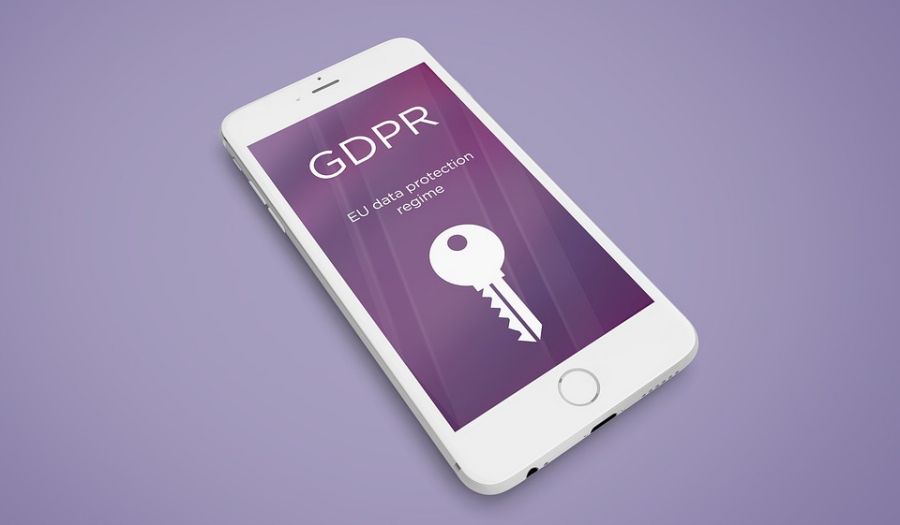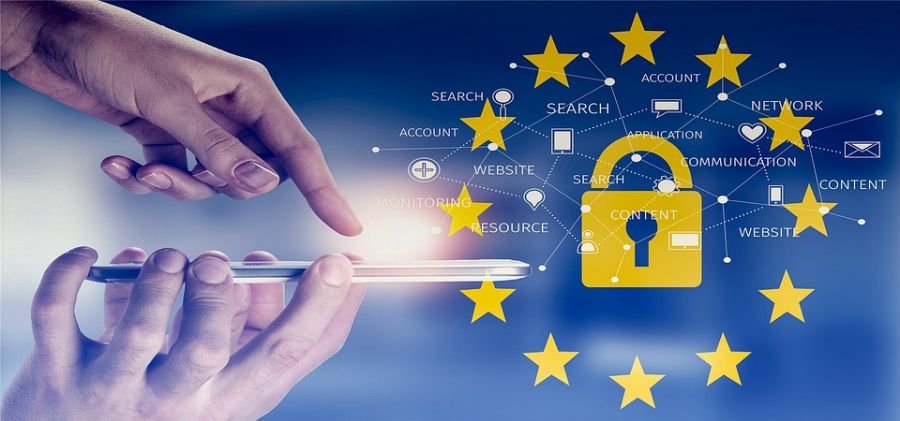8 Ways to Ensure You Remain GDPR Compliance

Even though there is so much talk about GDPR compliance, being ready to comply with the GDPR isn’t a one-time thing but rather a continuous process. This is because GDPR continually amends its privacy laws, requiring businesses to stay vigilant and proactive in their compliance efforts.
Trusting companies with how we share our data is an essential part of doing business online. Moreover, whenever a company needs personal data to run its business, consumers should be informed of how their data is being used so they can decide if they wish to use the services or not.
Don’t go anywhere because, in this article, we – as your trusted software development company – will find out the top ways how you can remain GDPR compliant.
Know the Key Concepts and Articles Concerning the GDPR
Complying with the GDPR is not just about implementing a few changes to your website. It is a comprehensive and ongoing process that impacts various aspects of your business operations, especially if you handle personal data. Many businesses may assume that if they are not directly involved in data processing, GDPR compliance is not relevant to them. However, this is a misconception. Even if your business does not directly process personal data, if you interact with customers’ data in any capacity, you need to comply with the GDPR. This means understanding the flow of data within your organization and ensuring that all practices align with GDPR requirements.
Data Controller
A data controller is the entity that determines the purposes, conditions, and means of processing personal data. This role is crucial because the data controller is responsible for ensuring that the data processing activities comply with GDPR principles. The data controller must determine what data is collected, the reasons for its collection, how it will be processed, and for how long it will be retained. They are also accountable for safeguarding the data and ensuring that data subjects’ rights are protected. For instance, a retail company collecting customer information for loyalty programs would be considered a data controller.
Data Subject
The data subject is the natural person to whom the personal data belongs. This term is crucial because GDPR is designed to protect the rights and freedoms of data subjects. Data subjects have specific rights under GDPR, such as the right to access their data, the right to rectify inaccurate data, the right to be forgotten, and the right to data portability. Understanding who your data subjects are and what rights they have is fundamental to ensuring GDPR compliance. For example, customers who provide their information for online purchases are data subjects.
Personal Data
Personal data refers to any information that relates to an identified or identifiable natural person. This includes obvious identifiers such as names and email addresses, as well as less obvious identifiers like IP addresses, location data, and even cookie identifiers. The scope of personal data is broad, and businesses need to be aware of all the types of personal data they collect, store, and process. This comprehensive understanding is necessary to implement appropriate data protection measures and comply with GDPR principles. For instance, even an IP address collected by a website for analytics purposes is considered personal data under GDPR.
Data Processor
A data processor is an entity that processes personal data on behalf of the data controller. The data processor’s role is to handle the data according to the data controller’s instructions. This relationship is typically governed by a contract that outlines the processor’s responsibilities and obligations. Data processors must also comply with GDPR requirements, particularly regarding data security and breach notification. For example, a cloud service provider that stores data for an e-commerce site acts as a data processor.
Raising Awareness
To achieve GDPR compliance, it is essential to raise awareness within your organization about the importance of data protection and the specific requirements of GDPR. This involves educating employees, especially those who handle personal data, about GDPR principles, data subject rights, and the organization’s policies and procedures related to data protection. Regular training sessions, workshops, and updates on GDPR amendments can help ensure that everyone in the organization understands their role in maintaining compliance.
Providing a Privacy Notice
A privacy notice is a key document that informs individuals about how their personal data is collected, used, stored, and shared by your organization. It should be clear, concise, and easily accessible. The privacy notice should cover various aspects, such as the types of personal data collected, the purposes of data processing, the legal basis for processing, data retention periods, and data subjects’ rights. Providing a comprehensive privacy notice not only helps comply with GDPR requirements but also builds trust with your customers by demonstrating transparency and accountability.
Taking Suitable Security Measures
Protecting personal data requires implementing appropriate technical and organizational measures to ensure data security. This includes measures such as encryption, access controls, regular security assessments, and employee training on data security best practices. Ensuring data security is not a one-time task but an ongoing process that involves continuous monitoring and improvement. Additionally, having a robust incident response plan in place can help quickly address and mitigate the impact of data breaches.
Having a Plan B
Despite the best security measures, data breaches can still occur. Therefore, it is crucial to have a contingency plan or Plan B to respond effectively to data breaches. This plan should outline the steps to be taken in the event of a breach, including notifying the relevant supervisory authority within 72 hours, informing affected individuals, and taking measures to contain and remediate the breach. Having a well-defined Plan B can help minimize the damage caused by a data breach and demonstrate your organization’s commitment to data protection.
Paying Attention to Subject Access Requests
Subject access requests (SARs) are an important aspect of GDPR compliance. Data subjects have the right to request access to their personal data and obtain information about how it is processed. Organizations must have procedures in place to handle SARs promptly and efficiently. This includes verifying the identity of the requester, gathering the requested information, and providing a response within the statutory timeframe. Properly managing SARs helps ensure compliance and builds trust with your data subjects.
Ensuring Proper Deletion of Personal Data
Under GDPR, data subjects have the right to request the deletion of their personal data, also known as the right to be forgotten. Organizations must have processes in place to respond to such requests and ensure that personal data is deleted securely and comprehensively. This includes identifying all locations where the data is stored, verifying the request, and providing confirmation to the data subject once the data has been deleted. Properly handling deletion requests is essential to maintaining GDPR compliance and upholding data subjects’ rights.
Documenting the Legal Basis for Data Processing
Documenting the legal basis for data processing is a critical aspect of GDPR compliance. Organizations must identify and record the legal grounds for each data processing activity, whether it is based on consent, contract necessity, legal obligation, vital interests, public task, or legitimate interests. This documentation helps demonstrate compliance with GDPR and provides a clear rationale for data processing activities. Additionally, it is important to regularly review and update the legal basis for processing to ensure it remains valid and appropriate.
By understanding and implementing these concepts and practices, businesses can navigate the complexities of GDPR and ensure they are fully compliant with data protection regulations.
Moreover, it’s always beneficial to get familiar with key articles to better understand the GDPR:
- Article 5: This article on the General Data Protection Regulation is about principles that relate to the processing of personal data
- Article 6: The lawful bases of personal data processing
- Article 12-22: Data subject rights such as data portability, data access, and more
- Article 25 & 32: Companies need to take the proper security measures to protect consumers against data fraud and protect their personal data at the highest level
Raise Awareness
The GDPR continues to urge businesses to remain compliant as soon as possible and to ensure they have ample time to plan for it. Decision-makers need to be well aware of the new amendments the GDPR brings in. Moreover, if you deal with processing personal data and don’t comply with the laws, you might face hefty fines.
An excellent example is Amazon, which failed to comply with the GDPR only last year and had to pay a hefty fine of more than 740 million Euros.
Provide A Privacy Notice

An essential step to ensure GDPR compliance is sending out privacy notices to clients and informing them of how you collect and use their personal data.
In this case, “personal data” refers to any information related to an individual. It doesn’t matter if the information is private, public, or even relates to the individual’s life. Personal data includes email addresses, IP addresses, bank information, social media posts, medical information, and more. Privacy notices should inform customers and site visitors of why you’re collecting their data, how long you’ll keep it, where it’ll be stored, and how they can gain access to it.
It’s crucial for clients to know how you use and share their personal data. Moreover, having only the option to “opt-out” isn’t enough. To stay GDPR compliant, you have to actively confirm that your users understand how their data is being used and that they actively choose to “opt-in” to share their data.
Ensure You Update Your Privacy Notice
Considering the fact that you’re collecting data and showing your users how you intend to use their information, under the new regulations, there are some other things you need to explain, such as:
- Your data retention periods
- Your legal basis for processing data
- The right to remain compliant with the ICO if there’s a problem with how you handle data
Take the suitable security measures
Security has to be on a high level when collecting private data. Remember that it’s your responsibility to ensure you take the necessary steps to keep personal data safe, secure, and prevent it from getting stolen or falling into the wrong hands. After all, fraud can hurt reputations and make users doubt you the next time they allow you to collect their personal data.
So, what can you do to avoid this? You can consider securing emails, encrypting data, and investing in anti-fraud security programs. In addition, you can consider reading SEON’S guide to loan fraud to understand more about common frauds that are done.
Additionally, you have to know that even if someone’s personal data is stolen, the GDPR will still hold you responsible for it, so there’s no escaping accountability. After all, you have to know that you are gathering the data, so it’s your responsibility to keep it safe!
Have a plan B

There’s no secret that data breaches have been on the rise over the past few years. Only a year ago, the FBI collected more than 800 thousand internet crimes conducted, and most of them had to do with data fraud. Additionally, hackers and other cybercriminals don’t have any issues staying ahead of technology, so they always try to find new ways to steal your data.
Even with the most advanced security measures, you might still face cyber-attacks and security breaches. To stay ahead of fraudsters, always have a Plan B in case your data gets stolen.
Your plan B should include how you’ll act if a breach occurs within 24 hours. Additionally, you should know what steps you’ll undertake to stop the breach and how to avoid them in the future. Finally, there’s plenty of software and software development companies or cybersecurity outsourcing partners you can choose against cyber crimes to protect you.
Pay attention to your subject access requests
Depending on the size of your organization, subject access requests can cause significant issues. Under the new rules, you’ll only have a month to comply with these requests, compared to 40 days previously. There are cases where you can refuse to comply with a subject access request, but if you do, you need to have the required procedures and policies to demonstrate why the request meets your criteria. Additionally, you can consider using a cost/benefit analysis for providing online access to individuals.
Ensure you know how to delete personal data

Remember that whenever you are complying with the GDPR, there should always be a way for how your client can delete their stored data upon their request. In addition, under new regulations, individuals have the right to be forgotten entirely under the GDPR
Ensure that you are vigilant when you have to delete user’s data and not delete it accidentally. After all, if customers request their data to be deleted, you’ll have to show them proof that you did delete their data.
Document your legal basis for processing personal data
Under regulations from the GDPR, individuals’ rights can be modified depending on your legal basis for processing their personal data. So, above all, it’s important to understand all types of data processing you undergo.
For example, your users can have their data deleted, where you’ll use your legal basis for processing. Therefore, you need to document your legal basis for carrying it out and document it after.
FAQ
What are the penalties for non-compliance with the GDPR?
Penalties for non-compliance can be severe, including fines up to 20 million Euros or 4% of the company’s annual global turnover, whichever is higher.
How often should we update our privacy policy?
Your privacy policy should be updated whenever there are significant changes to how you process personal data or when there are changes in GDPR regulations. Regular reviews are recommended to ensure ongoing compliance.
What constitutes personal data under the GDPR?
Personal data includes any information related to an identified or identifiable natural person. This can include names, email addresses, IP addresses, social media posts, and more.
How can we ensure our data processing activities are lawful?
To ensure lawful data processing, you need to identify and document the legal basis for each processing activity, such as consent, contract necessity, legal obligation, vital interests, public task, or legitimate interests.
What should we do in case of a data breach?
In the event of a data breach, you must notify the relevant supervisory authority within 72 hours and inform affected individuals without undue delay if the breach poses a high risk to their rights and freedoms. Having a plan B in place for such incidents is crucial.
What are data subject rights under the GDPR?
Data subject rights include the right to access, rectification, erasure, restriction of processing, data portability, and objection. Data subjects also have the right to not be subject to automated decision-making, including profiling.
Wrapping It Up
These were our top ways to ensure you remain GDPR compliant. The GDPR gets modified continuously, and with cyber-attacks rising, its regulations only become stricter every year. We don’t know what to expect in the upcoming years, but the best strategy is to stay updated on new regulations.
Before doing anything else, fully understand how the GDPR works. This understanding will help you better grasp all amendments made. Moreover, the GDPR has become stricter on data privacy, issuing fines for businesses that don’t follow the rules.
After fully understanding the GDPR, provide a privacy notice and inform your customers about everything that happens with their data. Transparency is key to maintaining trust and avoiding complaints.
Tech Consulting, End-to-End Product Development, Cloud & Software Development Services! Since 2009, Savvycom has been harnessing digital technologies for the benefit of businesses, mid and large enterprises, and startups across the variety of industries. We can help you to build high-quality software solutions and products as well as deliver a wide range of related it outsourcing services.
Savvycom is right where you need. Contact us now for further consultation:
- Phone: +84 24 3202 9222
- Hotline: +1 408 663 8600 (US); +612 8006 1349 (AUS); +84 32 675 2886 (VN)
- Email: [email protected]


